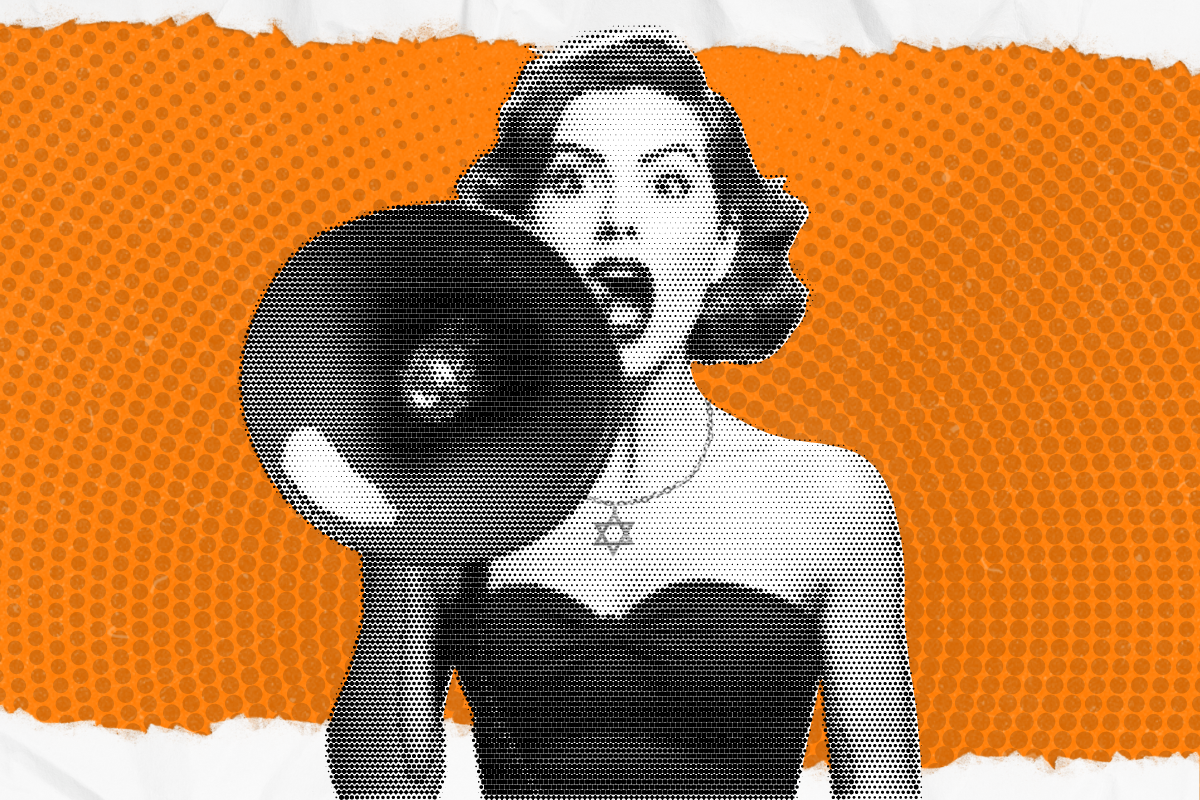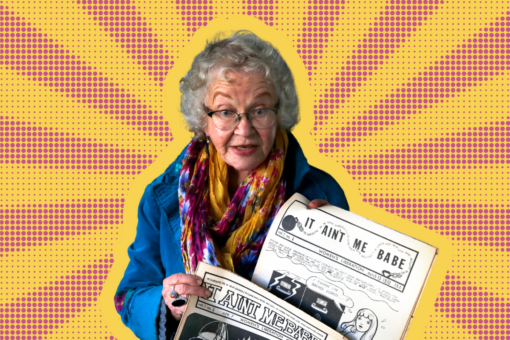Not long ago, I was sitting in a lecture about diversity in media and I realized about halfway through that my hand was in the air at just about every opportunity. I couldn’t figure out if I was saving my peers from having to answer or if they were sick of my input. I had stuff to say! I wanted answers! When I was finally called on, my mouth ran a mile a minute and I spoke in paragraphs. Soliloquies! Monologues!
I looked at my friend sitting next to me and said in a whisper: “I’m suffering from a severe case of I-can’t-shut-up-itis.”
I left the room after the talk feeling more than a little embarrassed and deeply aware of myself. I kicked myself for being quite so blatant in my answer-seeking and for seemingly calling the spotlight in the room onto myself. After all, couldn’t I have approached the speaker after the talk? Told him that I appreciated his coming to the event and asked him the questions later — or even emailed him?
On the drive home from the event, I psychoanalyzed myself as Taylor Swift sang softly in the background. I came to the conclusion that all of my talking stemmed from the dinner table at my home.
I was told recently that I give off only-child energy. I’ve also been told that I fit the stereotype of my zodiac sign: the Leo. But I’m not an only child; I have a sister, and to be frank, our family dinner table is frequently crowded with questions. The energy that others perceive as only child Leo vibes actually stems from talking over and interrupting — otherwise known in my family as spirited conversation. My family is loud. Argumentative. Persistent. Jewish. We talk about politics and journalism and whether or not Beanie Feldstein was the right choice for Fanny Brice or if Lea Michele was meant for the role. What do job options look like today? Why is the job market so bad? What team is Lebron going to choose when he becomes a free agent? The history of the freeways in Los Angeles and the good and the bad of them. What about intermarriage in Judaism? What’s a shandah in today’s world? Anything and everything is fair game and it’s a kind of cooperative overlap.
There are many parts of me that are wholly Jewish. My regular synagogue attendance. My curl pattern. My values. But I think that one of the most “Jewish” parts of who I am is that I talk — a lot. I’ll hold pretty firm in my stance but I want to know your side, too. I want to debate and listen. It’s something that seeps into my dating life. I’ll question myself when I get home: Couldn’t I have been quieter? Less inquisitive? More of a chill girl — the kind a nice eligible guy allegedly yearns for? Did I talk too much? Did I really need to know the name of his childhood dog? Did I embarrass myself when I talked extensively about “High School Musical”’s importance in the cultural canon?
I think about Passover, which holds the importance of Thanksgiving in my family (both for the Sephardis and Ashkenaz), when those from across the country all converge on this small dining room with about five different leaves on the table to extend it. Arms bump as left-handed people are seated next to righties and the seder table explodes with noise. Voices overlap as the students catch one another up on the semester and who got jury duty and yes, the weather really is nice, isn’t it? We talk over one another and we listen to each other as we speak and it’s all in an effort to be heard.
I could wax poetic and tell you that it goes back to biblical roots or shtetl roots — and maybe it does! The stereotyping of Jewish women is something that we see on television as well. Jewish women in television tend to be “loud” whereas the NJBs in television tend to be just that: nice mensches. Think about Fran Fine in “The Nanny” and how while she was an overwhelming positive influence on the Sheffield family, she also talked too much and was perceived as too loud initially. Without even seeing a Star of David around her neck, viewers knew that she was Jewish and not just that, she was a Jewish woman from New York (specifically the flashy girl from Flushing). Rhoda, from one of my favorite television shows, “The Mary Tyler Moore Show,” is Jewish — though it is rarely made explicit. She is understood to be Jewish primarily because of how she speaks her mind (though she blames that on her being from the Bronx) and because she had some sharp edges. It’s not because she said the Shema or baked challah, it was just because she happened to talk and stood in sharp contrast to Mary.
In 2019, there was a piece in the Los Angeles Times where Henry Bial, a professor at the University of Kansas, discussed these stereotypes: “… there’s a stereotype of Jewish women being more verbal, more opinionated, and less deferential than, say the WASPy stereotype.” And he later added, “because Jewish culture really does encourage that.” It’s unclear to me if this stereotype came about because of word of mouth or because of literature or because of the magic of television, but does it really matter? It exists. And isn’t it time that we own it?
I think about that lecture a lot, even though it happened a couple of months ago. I think about how my hand was constantly in the air and how the friend next to me bumped my elbow and drew out the words: “Talk slowwwer.” I rolled my eyes and laughed — trying not to disturb the speaker. As we walked out into the Southern California sunshine, I told her that I think it’s because I grew up smashing words together in order to fit my piece in at family dinner and would trip over them as I spoke loud enough to be heard at the far end of the seder table. It’s something that shocks my non-Jewish friends when they come over for dinner with my family and find that it’s casual and loud and that the table can double as a courtroom where ideas are debated and the newspaper is required reading. It’s why I laugh when I seem louder and more talkative to my non-Jewish friends, but I seem more deferential and more “normal” to my Jewish friends. We really just have so much to say. But, for me, it’s typical. It’s why I seem like a prototype Leo and why I really really can’t shut up. I’m used to being interrupted and I love it — it means that I’m home.



